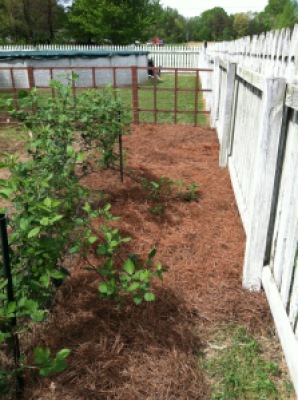Are you tired of weeding? Have you spent countless hours pulling, cutting, and digging weeds? I know I have. Now, we have the chickens we can at least put the weeds to good use.
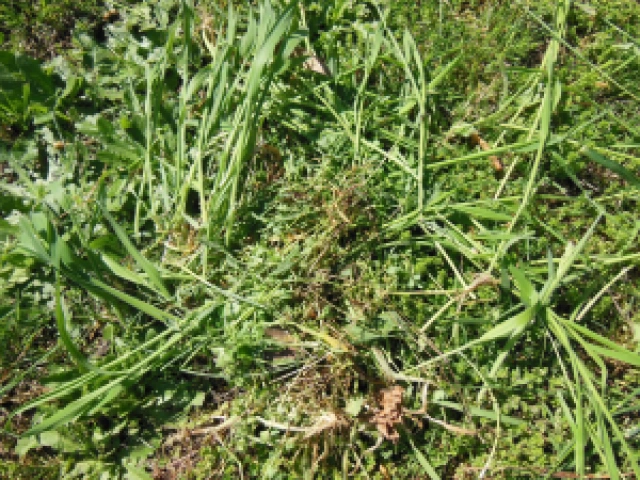 |
| Weeds aka Chicken Treats |
Over the years I have tried laying down rolls of black plastic and the garden weed barrier fabric. Initially, they do work.
However, over time they will begin to breakdown. The problem with them breaking down is they do not completely decompose. I am constantly finding little pieces of old torn black plastic or fabric from many years ago that just work their way up. I think it is all gone yet it just keeps coming year after year much like those pesky weeds!
Buying rolls of this can get expensive too. I am all for anything cheap or free that makes my life easier without being a detriment to the environment.
Although the gals love the scraps (trust me they are not in deficit and also free range), I am tired of weeding! In a recent battle with the weeds bordering our garden fence I had enough.
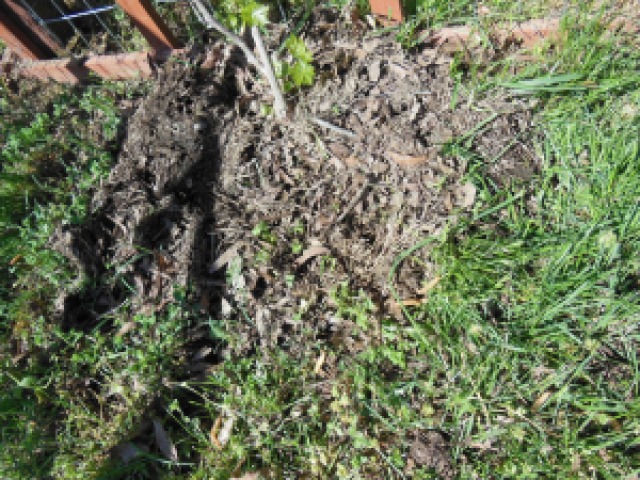 |
| The grapevines are in desperate need of weeding and fresh compost and mulch |
I went into the house rummaging for every newspaper and cardboard box I could find. At that moment, I did not scrounge up a lot but it was a few boxes and papers….enough to get me started. Be sure not to use newspaper or cardboard with a glossy or waxy finish. The glossy finish will prevent them from decomposing overtime and is not as Eco-friendly.
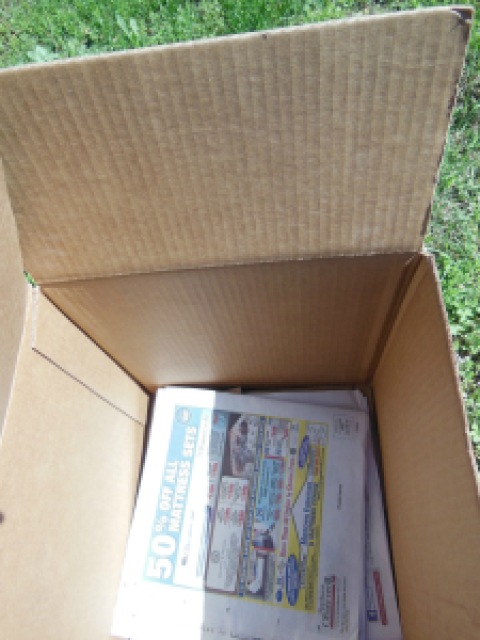 |
| Cardboard and Newspapers for Weed Control |
Then I just started cutting the cardboard and laying it down over the grass along the fence. I used the newspapers to fill in smaller areas.
 |
 |
Then I covered the cardboard and newspapers with pine needles. You could also use leaves, mulch, or wood chips as cover. We have lots of pine trees so pine needles are abundant and free. Jon gave them a little water to hold it all down.
 |
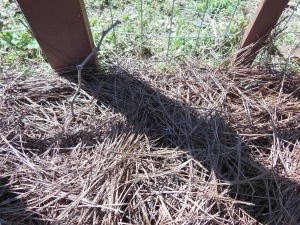 |
 |
|
Now, doesn’t that look lovely? I barely had enough. But this just got us fired up to do more on the inside of the fence in the walkways between the fence and the garden. Last year we mowed with a push mower. If you directed the mower in one direction it all slung out hit the fence and bounced back everywhere into the berries and garden area. If you directed the mower the other direction then the grass was just slung full velocity into the garden.
Jon had to work that night and came back with 6 big cardboard boxes from the restaurant. Luckily, we have access to plenty of free boxes. Sunday afternoon while he was at work I began laying them out on the inside of the fence in the walkway. I made sure to overlap the cardboard so the little devils cannot find a crack to creep through. 6 boxes went fast!
Jon got several more boxes from work and he continued laying the cardboard weed barrier along the inside of our fence. We still have several more areas to go. We also plan to lay a barrier down in the garden as well. The few weeds we have in the garden are small right now so we are concentrating on the more difficult areas first.
In then garden we will cover with leaves rather than pine needles. Pine needles lower the pH and our soil already tends to be acidic.
Although I know we will never be free of weeding, this method will cut down on the labor and time involved. Cardboard and newspaper will eventually decompose so over time we will need to repeat. However, the cardboard and newspaper will truly decompose and not leave lingering pieces of litter everywhere.
This approach can also be used in an area to plant. Simply lay a barrier of cardboard or thick newspapers and cover with compost and rich soil. Plant to your heart’s content and cover the unplanted areas with leaves, mulch, pine needles, etc. Be cognizant of your soil acidity and plant needs when choosing your cover.
Benefits of Cardboard/Newspaper vs. Landscaping Fabric or Plastic:
- It is completely biodegradable over several months.
- It is free! Everyone can find some cardboard somewhere. Just ask a grocery store or a restaurant.
- It is recycling at it’s finest!
- It helps promote worms (Natures Aerators). Worms love cardboard. Soil with worms is healthy soil. For more information on worms check out The Complete Guide to Gardening and Composting with Worms book.
- It will help hold moisture in your garden area.
